 The Magic Flute Page 1Opera Classics Library Series Page 2The Magic Flute Page 3It takes more culture to perceive the virtues ofThe Magic Flute text than to point out its defects -Wolfgang von Goethe Opera Classics Library Series Page 4Opera Journeys Mini Guide SeriesOpera Classics Library SeriesOpera Journeys Libretto SeriesA History of Opera: Milestones and MetamorphosesOpera Classics Library Puccini Companion: the Glorious DozenOVER 60 TITLES AVAILABLE: LAfricaine Abduction from the Seraglio Aida Andrea Chnier The Barber of Seville La Bohme Boris Godunov Carmen Cavalleria Rusticana Cos fan tutte Der Freischtz Der Rosenkavalier Die Fledermaus Don Carlo Don Giovanni Don Pasquale The Elixir of Love Elektra Eugene Onegin Exploring Wagners Ring Falstaff La Fanciulla del West Faust La Fille du Rgiment Fidelio The Flying Dutchman Gianni Schicchi Hansel and Gretel LItaliana in Algeri Julius Caesar Lohengrin Lucia di Lammermoor Macbeth Madama Butterfly The Magic Flute Manon Manon Lescaut The Marriage of Figaro A Masked Ball The Mikado Norma Otello I Pagliacci Pellas et Mlisande Porgy and Bess The Rhinegold Rigoletto The Ring of the Nibelung La Rondine Salome Samson and Delilah Siegfried La Sonnambula Suor Angelica Il Tabarro The Tales of Hoffmann Tannhuser Tosca La Traviata Tristan and Isolde Il Trittico Il Trovatore Turandot Twilight of the Gods The Valkyrie Werther Wozzeck Copyright 2001, 2005 by Opera Journeys Publishing ISBN 0-9771455-0-6 All rights reserved No part of this publication may be reproduced, stored in a retrieval system, or transmitted, in any form or by any means, electronic, mechanical, photocopying, recording, or otherwise, without the prior permission from Opera Journeys Publishing. All musical notations contained herein are original transcriptions by Opera Journeys Publishing. Discography and Videography listings represent selections by the editors. Due to numerous re-issues of recordings and videos, issuer numbers and designations have been intentionally omitted. WEB SITE: www.operajourneys.com E MAIL: operaj@bellsouth.netThe Magic Flute Page 5MozartsThe Magic FluteOPERA CLASSICS LIBRARYSERIES Edited by Burton D. Fisher Principal lecturer, Opera Journeys Lecture Series___________________________________________Opera Journeys Publishing / Miami, Florida Opera Classics Library Series Page 6The Magic Flute Page 7Contentsa preludePage 9The Magic FlutePage 11Commentary and AnalysisPage 13Principal Characters in The Magic FlutePage 25Brief Story SynopsisPage 25Story Narrative with Music Highlight ExamplesPage 27Act I - Scene 1Page 27Act I - Scene 2Page 30Act I - Scene 3Page 30Act II - Scene 1Page 32Act II - Scene 2Page 33Act II - Scene 3Page 33Act II - Scene 4Page 35Act II - Scene 5Page 36Act II - Scene 6Page 36Act II - Scene 7Page 37Act II - Scene 8Page 37Act II - Scene 9Page 37Act II - Scene 10Page 38Libretto with Music Highlight ExamplesPage 39Act I - Scene 1Page 41Act I - Scene 2Page 56Act I - Scene 3Page 62Act II - Scene 1Page 73Act II - Scene 2Page 75Act II - Scene 3Page 83Act II - Scene 4Page 88Act II - Scene 5Page 94Act II - Scene 6Page 97Act II - Scene 7Page 103Act II - Scene 8Page 106Act II - Scene 9Page 109Act II - Scene 10Page 110DiscographyPage 111VideographyPage 117Dictionary of Opera and Musical TermsPage 121Opera Classics Library Series Page 8The Magic Flute Page 9a Prelude........to OPERA CLASSICS LIBRARYsThe Magic FluteThe Magic Flute possesses many levels of interpretation: it is a fairy tale in which moral forces struggle against evil; it is a political and social allegory of late eighteenth century Austrian politics; it is an archetypal story of mans elevation to consciousness and awareness; and it is an exposition of the ideals of Freemasonry.
The Magic Flute Page 1Opera Classics Library Series Page 2The Magic Flute Page 3It takes more culture to perceive the virtues ofThe Magic Flute text than to point out its defects -Wolfgang von Goethe Opera Classics Library Series Page 4Opera Journeys Mini Guide SeriesOpera Classics Library SeriesOpera Journeys Libretto SeriesA History of Opera: Milestones and MetamorphosesOpera Classics Library Puccini Companion: the Glorious DozenOVER 60 TITLES AVAILABLE: LAfricaine Abduction from the Seraglio Aida Andrea Chnier The Barber of Seville La Bohme Boris Godunov Carmen Cavalleria Rusticana Cos fan tutte Der Freischtz Der Rosenkavalier Die Fledermaus Don Carlo Don Giovanni Don Pasquale The Elixir of Love Elektra Eugene Onegin Exploring Wagners Ring Falstaff La Fanciulla del West Faust La Fille du Rgiment Fidelio The Flying Dutchman Gianni Schicchi Hansel and Gretel LItaliana in Algeri Julius Caesar Lohengrin Lucia di Lammermoor Macbeth Madama Butterfly The Magic Flute Manon Manon Lescaut The Marriage of Figaro A Masked Ball The Mikado Norma Otello I Pagliacci Pellas et Mlisande Porgy and Bess The Rhinegold Rigoletto The Ring of the Nibelung La Rondine Salome Samson and Delilah Siegfried La Sonnambula Suor Angelica Il Tabarro The Tales of Hoffmann Tannhuser Tosca La Traviata Tristan and Isolde Il Trittico Il Trovatore Turandot Twilight of the Gods The Valkyrie Werther Wozzeck Copyright 2001, 2005 by Opera Journeys Publishing ISBN 0-9771455-0-6 All rights reserved No part of this publication may be reproduced, stored in a retrieval system, or transmitted, in any form or by any means, electronic, mechanical, photocopying, recording, or otherwise, without the prior permission from Opera Journeys Publishing. All musical notations contained herein are original transcriptions by Opera Journeys Publishing. Discography and Videography listings represent selections by the editors. Due to numerous re-issues of recordings and videos, issuer numbers and designations have been intentionally omitted. WEB SITE: www.operajourneys.com E MAIL: operaj@bellsouth.netThe Magic Flute Page 5MozartsThe Magic FluteOPERA CLASSICS LIBRARYSERIES Edited by Burton D. Fisher Principal lecturer, Opera Journeys Lecture Series___________________________________________Opera Journeys Publishing / Miami, Florida Opera Classics Library Series Page 6The Magic Flute Page 7Contentsa preludePage 9The Magic FlutePage 11Commentary and AnalysisPage 13Principal Characters in The Magic FlutePage 25Brief Story SynopsisPage 25Story Narrative with Music Highlight ExamplesPage 27Act I - Scene 1Page 27Act I - Scene 2Page 30Act I - Scene 3Page 30Act II - Scene 1Page 32Act II - Scene 2Page 33Act II - Scene 3Page 33Act II - Scene 4Page 35Act II - Scene 5Page 36Act II - Scene 6Page 36Act II - Scene 7Page 37Act II - Scene 8Page 37Act II - Scene 9Page 37Act II - Scene 10Page 38Libretto with Music Highlight ExamplesPage 39Act I - Scene 1Page 41Act I - Scene 2Page 56Act I - Scene 3Page 62Act II - Scene 1Page 73Act II - Scene 2Page 75Act II - Scene 3Page 83Act II - Scene 4Page 88Act II - Scene 5Page 94Act II - Scene 6Page 97Act II - Scene 7Page 103Act II - Scene 8Page 106Act II - Scene 9Page 109Act II - Scene 10Page 110DiscographyPage 111VideographyPage 117Dictionary of Opera and Musical TermsPage 121Opera Classics Library Series Page 8The Magic Flute Page 9a Prelude........to OPERA CLASSICS LIBRARYsThe Magic FluteThe Magic Flute possesses many levels of interpretation: it is a fairy tale in which moral forces struggle against evil; it is a political and social allegory of late eighteenth century Austrian politics; it is an archetypal story of mans elevation to consciousness and awareness; and it is an exposition of the ideals of Freemasonry.
Mozarts sublime music score emphasizes the operas underlying intellectual elements: those noble sentiments of freedom, truth, and human brotherhood that pervaded the minds of men of intelligence and goodwill during the Enlightenment, reaching their full fruition in the French Revolution of 1789. OPERA CLASSICS LIBRARY explores the greatness of The Magic Flute. The Commentary and Analysis offers pertinent biographical information about Mozarts mind-set at the time of the operas composition, the genesis of the opera, its premiere and performance history, and insightful story and character analysis. The text also contains a Brief Story Synopsis, Principal Characters in The MagicFlute, and Story Narrative with Music Highlight Examples, the latter containing original music transcriptions that are interspersed appropriately within the storys dramatic exposition. In addition, the text includes a Discography, Videography, and a Dictionaryof Opera and Musical Terms. The Libretto has been newly translated by the Opera Journeys staff with specific emphasis on retaining a literal translation, but also with the objective to provide a faithful translation in modern and contemporary English; in this way, the substance of the drama becomes more intelligible. To enhance educational and study objectives, the Libretto also contains music highlight examples interspersed within the drama. The opera art form is the sum of many artistic expressions: theatrical drama, music, scenery, poetry, dance, acting and gesture.
In opera, it is the composer who is the dramatist, using the emotive power of his music to express intense, human conflicts. Words evoke thought, but music provokes feelings. As such, operas sublime fusion of words, music, and all the theatrical arts, provides powerful theater, an impact on ones sensibilities that can reach into the very depths of the human soul. Mozarts The Magic Flute is a work possessing serene spirituality; it remains a masterpiece of the lyric theater, and a tribute to the art form as well as to its ingenious composer. Burton D. Fisher Editor OPERA CLASSICS LIBRARY Opera Classics Library Series Page 10The Magic Flute Page 11The Magic FluteDie ZauberflteA SingspielOpera in German in two actsMusicbyWolfgang Amadeus MozartLibretto by:Emanuel Schikaneder and Carl Ludwig GieseckePremiere:Wiedener Theater, Vienna,September 1791Opera Classics Library Series Page 12The Magic Flute Page 13Commentary and AnalysisT he Magic Flute is a supremely outstanding operatic work, whose underlying story provides various interpretative probabilities.
Its basic story is essentially a fantastic fairy tale that is imbedded with mystery, sorcery and witchcraft. In that sense, its underlying conflict, the Queen of the Night against Sarastro in a battle for the custody and education of the Queens daughter, Princess Pamina, can ultimately be viewed as a power struggle between the forces of good against the forces of evil. The Magic Flute is also an allegory clothed in the ideals of Freemasonry: its story provides an idealistic portrayal of humanitys struggle for truth, wisdom, and nobility, and the adversity and self-sacrifice inherent in achieving those goals. But in the 18th century, Freemasonry was a secret brotherhood that was in conflict with the uncompromising Austrian Hapsburgs. As a political and social allegory, the story therefore represents a veiled assault on the autocratic rule of Empress Maria Theresa, who was known for her intense passion in suppressing Freemasonry: in that sense, Maria Theresa appears allegorically as the Queen of the Night; Prince Tamino as the Emperor Josef II, a defender of the secret order; and Pamina as the Austrian people who were caught in the conflicting political struggle. A final interpretive possibility is that
Next page
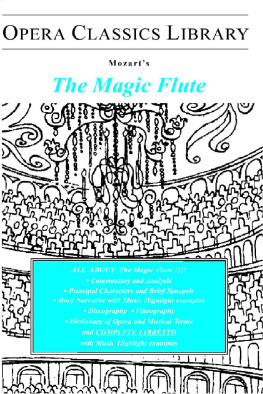
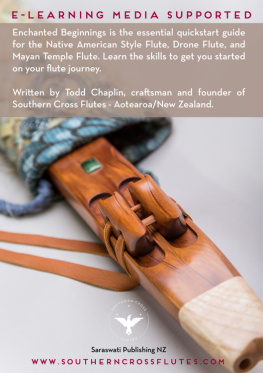
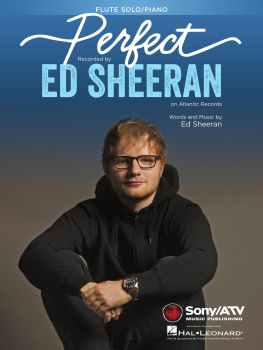
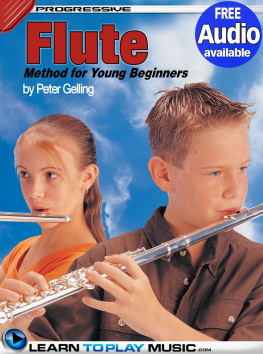
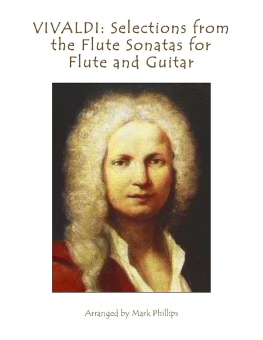

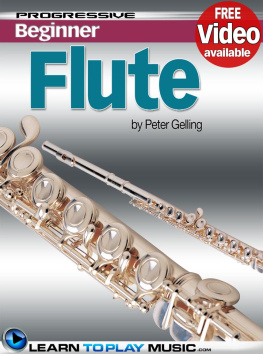
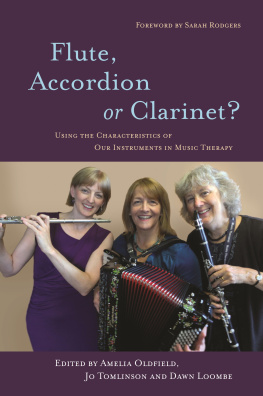
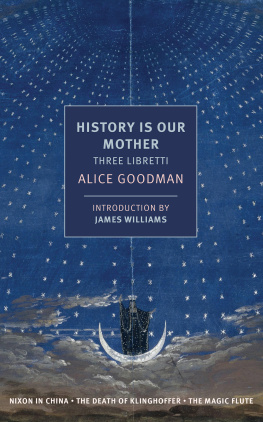
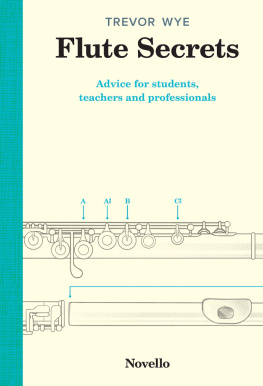
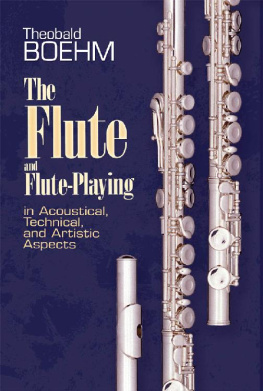
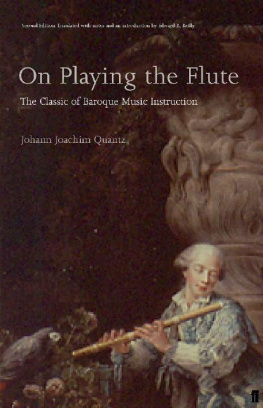
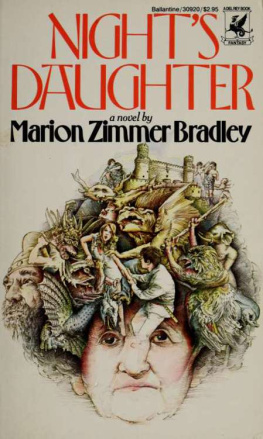
 The Magic Flute Page 1Opera Classics Library Series Page 2The Magic Flute Page 3It takes more culture to perceive the virtues ofThe Magic Flute text than to point out its defects -Wolfgang von Goethe Opera Classics Library Series Page 4Opera Journeys Mini Guide SeriesOpera Classics Library SeriesOpera Journeys Libretto SeriesA History of Opera: Milestones and MetamorphosesOpera Classics Library Puccini Companion: the Glorious DozenOVER 60 TITLES AVAILABLE: LAfricaine Abduction from the Seraglio Aida Andrea Chnier The Barber of Seville La Bohme Boris Godunov Carmen Cavalleria Rusticana Cos fan tutte Der Freischtz Der Rosenkavalier Die Fledermaus Don Carlo Don Giovanni Don Pasquale The Elixir of Love Elektra Eugene Onegin Exploring Wagners Ring Falstaff La Fanciulla del West Faust La Fille du Rgiment Fidelio The Flying Dutchman Gianni Schicchi Hansel and Gretel LItaliana in Algeri Julius Caesar Lohengrin Lucia di Lammermoor Macbeth Madama Butterfly The Magic Flute Manon Manon Lescaut The Marriage of Figaro A Masked Ball The Mikado Norma Otello I Pagliacci Pellas et Mlisande Porgy and Bess The Rhinegold Rigoletto The Ring of the Nibelung La Rondine Salome Samson and Delilah Siegfried La Sonnambula Suor Angelica Il Tabarro The Tales of Hoffmann Tannhuser Tosca La Traviata Tristan and Isolde Il Trittico Il Trovatore Turandot Twilight of the Gods The Valkyrie Werther Wozzeck Copyright 2001, 2005 by Opera Journeys Publishing ISBN 0-9771455-0-6 All rights reserved No part of this publication may be reproduced, stored in a retrieval system, or transmitted, in any form or by any means, electronic, mechanical, photocopying, recording, or otherwise, without the prior permission from Opera Journeys Publishing. All musical notations contained herein are original transcriptions by Opera Journeys Publishing. Discography and Videography listings represent selections by the editors. Due to numerous re-issues of recordings and videos, issuer numbers and designations have been intentionally omitted. WEB SITE: www.operajourneys.com E MAIL: operaj@bellsouth.netThe Magic Flute Page 5MozartsThe Magic FluteOPERA CLASSICS LIBRARYSERIES Edited by Burton D. Fisher Principal lecturer, Opera Journeys Lecture Series___________________________________________Opera Journeys Publishing / Miami, Florida Opera Classics Library Series Page 6The Magic Flute Page 7Contentsa preludePage 9The Magic FlutePage 11Commentary and AnalysisPage 13Principal Characters in The Magic FlutePage 25Brief Story SynopsisPage 25Story Narrative with Music Highlight ExamplesPage 27Act I - Scene 1Page 27Act I - Scene 2Page 30Act I - Scene 3Page 30Act II - Scene 1Page 32Act II - Scene 2Page 33Act II - Scene 3Page 33Act II - Scene 4Page 35Act II - Scene 5Page 36Act II - Scene 6Page 36Act II - Scene 7Page 37Act II - Scene 8Page 37Act II - Scene 9Page 37Act II - Scene 10Page 38Libretto with Music Highlight ExamplesPage 39Act I - Scene 1Page 41Act I - Scene 2Page 56Act I - Scene 3Page 62Act II - Scene 1Page 73Act II - Scene 2Page 75Act II - Scene 3Page 83Act II - Scene 4Page 88Act II - Scene 5Page 94Act II - Scene 6Page 97Act II - Scene 7Page 103Act II - Scene 8Page 106Act II - Scene 9Page 109Act II - Scene 10Page 110DiscographyPage 111VideographyPage 117Dictionary of Opera and Musical TermsPage 121Opera Classics Library Series Page 8The Magic Flute Page 9a Prelude........to OPERA CLASSICS LIBRARYsThe Magic FluteThe Magic Flute possesses many levels of interpretation: it is a fairy tale in which moral forces struggle against evil; it is a political and social allegory of late eighteenth century Austrian politics; it is an archetypal story of mans elevation to consciousness and awareness; and it is an exposition of the ideals of Freemasonry.
The Magic Flute Page 1Opera Classics Library Series Page 2The Magic Flute Page 3It takes more culture to perceive the virtues ofThe Magic Flute text than to point out its defects -Wolfgang von Goethe Opera Classics Library Series Page 4Opera Journeys Mini Guide SeriesOpera Classics Library SeriesOpera Journeys Libretto SeriesA History of Opera: Milestones and MetamorphosesOpera Classics Library Puccini Companion: the Glorious DozenOVER 60 TITLES AVAILABLE: LAfricaine Abduction from the Seraglio Aida Andrea Chnier The Barber of Seville La Bohme Boris Godunov Carmen Cavalleria Rusticana Cos fan tutte Der Freischtz Der Rosenkavalier Die Fledermaus Don Carlo Don Giovanni Don Pasquale The Elixir of Love Elektra Eugene Onegin Exploring Wagners Ring Falstaff La Fanciulla del West Faust La Fille du Rgiment Fidelio The Flying Dutchman Gianni Schicchi Hansel and Gretel LItaliana in Algeri Julius Caesar Lohengrin Lucia di Lammermoor Macbeth Madama Butterfly The Magic Flute Manon Manon Lescaut The Marriage of Figaro A Masked Ball The Mikado Norma Otello I Pagliacci Pellas et Mlisande Porgy and Bess The Rhinegold Rigoletto The Ring of the Nibelung La Rondine Salome Samson and Delilah Siegfried La Sonnambula Suor Angelica Il Tabarro The Tales of Hoffmann Tannhuser Tosca La Traviata Tristan and Isolde Il Trittico Il Trovatore Turandot Twilight of the Gods The Valkyrie Werther Wozzeck Copyright 2001, 2005 by Opera Journeys Publishing ISBN 0-9771455-0-6 All rights reserved No part of this publication may be reproduced, stored in a retrieval system, or transmitted, in any form or by any means, electronic, mechanical, photocopying, recording, or otherwise, without the prior permission from Opera Journeys Publishing. All musical notations contained herein are original transcriptions by Opera Journeys Publishing. Discography and Videography listings represent selections by the editors. Due to numerous re-issues of recordings and videos, issuer numbers and designations have been intentionally omitted. WEB SITE: www.operajourneys.com E MAIL: operaj@bellsouth.netThe Magic Flute Page 5MozartsThe Magic FluteOPERA CLASSICS LIBRARYSERIES Edited by Burton D. Fisher Principal lecturer, Opera Journeys Lecture Series___________________________________________Opera Journeys Publishing / Miami, Florida Opera Classics Library Series Page 6The Magic Flute Page 7Contentsa preludePage 9The Magic FlutePage 11Commentary and AnalysisPage 13Principal Characters in The Magic FlutePage 25Brief Story SynopsisPage 25Story Narrative with Music Highlight ExamplesPage 27Act I - Scene 1Page 27Act I - Scene 2Page 30Act I - Scene 3Page 30Act II - Scene 1Page 32Act II - Scene 2Page 33Act II - Scene 3Page 33Act II - Scene 4Page 35Act II - Scene 5Page 36Act II - Scene 6Page 36Act II - Scene 7Page 37Act II - Scene 8Page 37Act II - Scene 9Page 37Act II - Scene 10Page 38Libretto with Music Highlight ExamplesPage 39Act I - Scene 1Page 41Act I - Scene 2Page 56Act I - Scene 3Page 62Act II - Scene 1Page 73Act II - Scene 2Page 75Act II - Scene 3Page 83Act II - Scene 4Page 88Act II - Scene 5Page 94Act II - Scene 6Page 97Act II - Scene 7Page 103Act II - Scene 8Page 106Act II - Scene 9Page 109Act II - Scene 10Page 110DiscographyPage 111VideographyPage 117Dictionary of Opera and Musical TermsPage 121Opera Classics Library Series Page 8The Magic Flute Page 9a Prelude........to OPERA CLASSICS LIBRARYsThe Magic FluteThe Magic Flute possesses many levels of interpretation: it is a fairy tale in which moral forces struggle against evil; it is a political and social allegory of late eighteenth century Austrian politics; it is an archetypal story of mans elevation to consciousness and awareness; and it is an exposition of the ideals of Freemasonry.